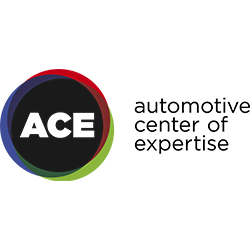Het P&O-actueel Zakboek biedt een compleet en actueel overzicht van het totale HRM-gebied. Het bevat een unieke verzameling informatie over personeelsmanagement en sociaal beleid. Dit Zakboek geeft richtlijnen, maatregelen en handige tips op het gebied van personeelsmanagement. Het is de vraagbaak bij HRM-vraagstukken
DOCUMENT
-
DOCUMENT
Current methods for energy diagnosis in heating, ventilation and air conditioning (HVAC) systems are not consistent with process and instrumentation diagrams (P&IDs) as used by engineers to design and operate these systems, leading to very limited application of energy performance diagnosis in practice. In a previous paper, a generic reference architecture – hereafter referred to as the 4S3F (four symptoms and three faults) framework – was developed. Because it is closely related to the way HVAC experts diagnose problems in HVAC installations, 4S3F largely overcomes the problem of limited application. The present article addresses the fault diagnosis process using automated fault identification (AFI) based on symptoms detected with a diagnostic Bayesian network (DBN). It demonstrates that possible faults can be extracted from P&IDs at different levels and that P&IDs form the basis for setting up effective DBNs. The process was applied to real sensor data for a whole year. In a case study for a thermal energy plant, control faults were successfully isolated using balance, energy performance and operational state symptoms. Correction of the isolated faults led to annual primary energy savings of 25%. An analysis showed that the values of set probabilities in the DBN model are not outcome-sensitive. Link to the formal publication via its DOI https://doi.org/10.1016/j.enbuild.2020.110289
DOCUMENT

As the Dutch population is aging, the field of music-in-healthcare keeps expanding. Healthcare, institutionally and at home, is multiprofessional and demands interprofessional collaboration. Musicians are sought-after collaborators in social and healthcare fields, yet lesser-known agents of this multiprofessional group. Although live music supports social-emotional wellbeing and vitality, and nurtures compassionate care delivery, interprofessional collaboration between musicians, social work, and healthcare professionals remains marginal. This limits optimising and integrating music-making in the care. A significant part of this problem is a lack of collaborative transdisciplinary education for music, social, and healthcare students that deep-dives into the development of interprofessional skills. To meet the growing demand for musical collaborations by particularly elderly care organisations, and to innovate musical contributions to the quality of social and healthcare in Northern Netherlands, a transdisciplinary education for music, physiotherapy, and social work studies is needed. This project aims to equip multiprofessional student groups of Hanze with interprofessional skills through co-creative transdisciplinary learning aimed at innovating and improving musical collaborative approaches for working with vulnerable, often older people. The education builds upon experiential learning in Learning LABs, and collaborative project work in real-life care settings, supported by transdisciplinary community forming.The expected outcomes include a new concept of a transdisciplinary education for HBO-curricula, concrete building blocks for a transdisciplinary arts-in-health minor study, innovative student-led approaches for supporting the care and wellbeing of (older) vulnerable people, enhanced integration of musicians in interprofessional care teams, and new interprofessional structures for educational collaboration between music, social work and healthcare faculties.
Erasmus project about training cultural workers for facilitating rural youths culture
MUSE supports the CIVITAS Community to increase its impact on urban mobility policy making and advance it to a higher level of knowledge, exchange, and sustainability.As the current Coordination and Support Action for the CIVITAS Initiative, MUSE primarily engages in support activities to boost the impact of CIVITAS Community activities on sustainable urban mobility policy. Its main objectives are to:- Act as a destination for knowledge developed by the CIVITAS Community over the past twenty years.- Expand and strengthen relationships between cities and stakeholders at all levels.- Support the enrichment of the wider urban mobility community by providing learning opportunities.Through these goals, the CIVITAS Initiative strives to support the mobility and transport goals of the European Commission, and in turn those in the European Green Deal.Breda University of Applied Sciences is the task leader of Task 7.3: Exploitation of the Mobility Educational Network and Task 7.4: Mobility Powered by Youth Facilitation.
Centre of Expertise, onderdeel van Hogeschool Rotterdam, Hogeschool van Arnhem en Nijmegen, Fontys

Centre of Expertise, onderdeel van Fontys
Lectoraat, onderdeel van Saxion
